Far Cry 5 review: an American tale
A captivating open world
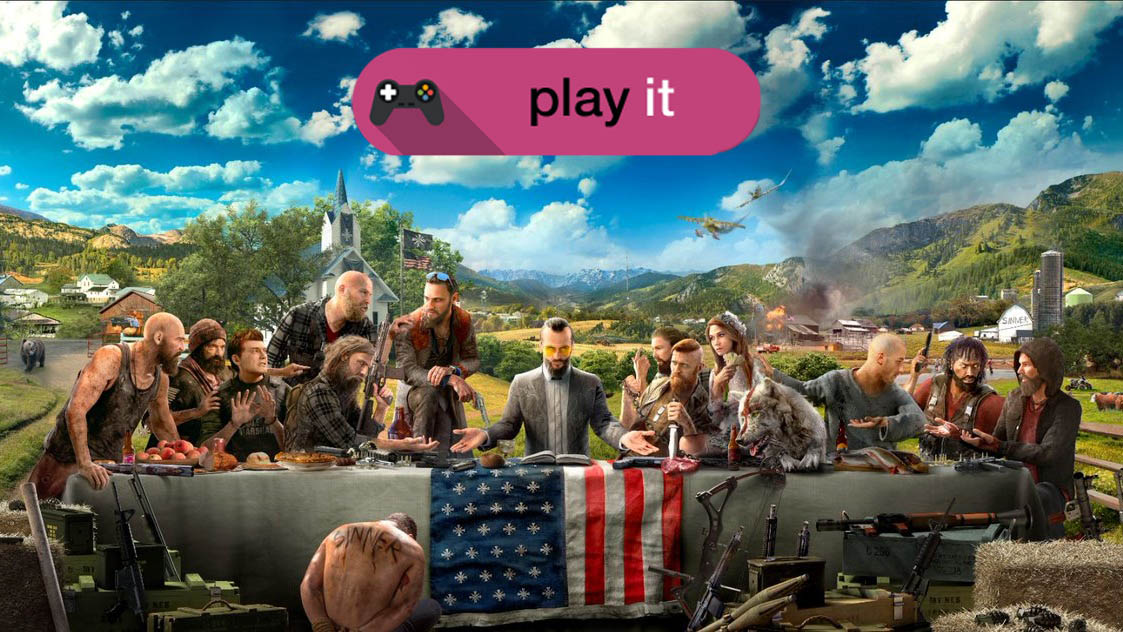
If you’ve played either of the recent numbered entries in Ubisoft Montreal's open-world franchise, much of Far Cry 5’s DNA will be familiar right from the off. You’ll use stealth and all out warfare to defeat a seemingly endless army of militant fanatics; you’ll help a homegrown Resistance slowly reclaim their home from said encroaching cult; you’ll then complete myriad missions to earn extra cash, while using a garage full of vehicles to get from firefight A to firefight B. So far so Far Cry.
However, in an effort to address some of the tropes that have hampered the series for years, the Canadian developer has made some significant changes to that recognizable formula. Some enhance the open-world shooter for the better, but some actively replace one problematic element with an another.
It’s the sense of freedom that strikes you first in Far Cry 5. Gone are the clichéd radio towers that once conquered filled in the map with new activities and points of interest (well, there’s one ostentatiously-tall one right at the start, but it’s more of an ironic moment of self-awareness).
Bar completing a short set of tutorials on a small island, the entirety – and the enormity – of Far Cry 5’s new locale is open for you to explore. It can be a little intimidating for a series that’s previously enforced a firm sense of semi-linearity, but it’s part of a conscious decision to empower you while you’re freely navigating its wide-open American landscape.

Cry me a river
And what a place to traverse it is. Hope County’s Montana setting is the most ambitious (and most technically impressive) playground the series has offered to date. Through thick patches of woodland, treacherous mountain ranges and verdant fields of lush farmland, it makes for a captivating game world that’s both striking to behold and disarmingly familiar to inhabit. The northwestern setting is a bold choice, especially in an era where gun violence on American soil has become an important and painfully real discourse.
Its choice of villains was also a cause for controversy among some fans prior to release, mainly because it seemed as if Far Cry 5 was going full political with a commentary on white supremacy. That doesn't seem to be the case given a strong racial diversity in place among the ranks of the blandly-attired cultist minions (and among the townsfolk you’ll help along the way). Instead, you’re getting a narrative more concerned with the destructive influence of religious fundamentalism and the dangerous precedent for the cults of personality that surround figures of power. So yes, it is a bit political, but it doesn’t force the issues down your throat too often.
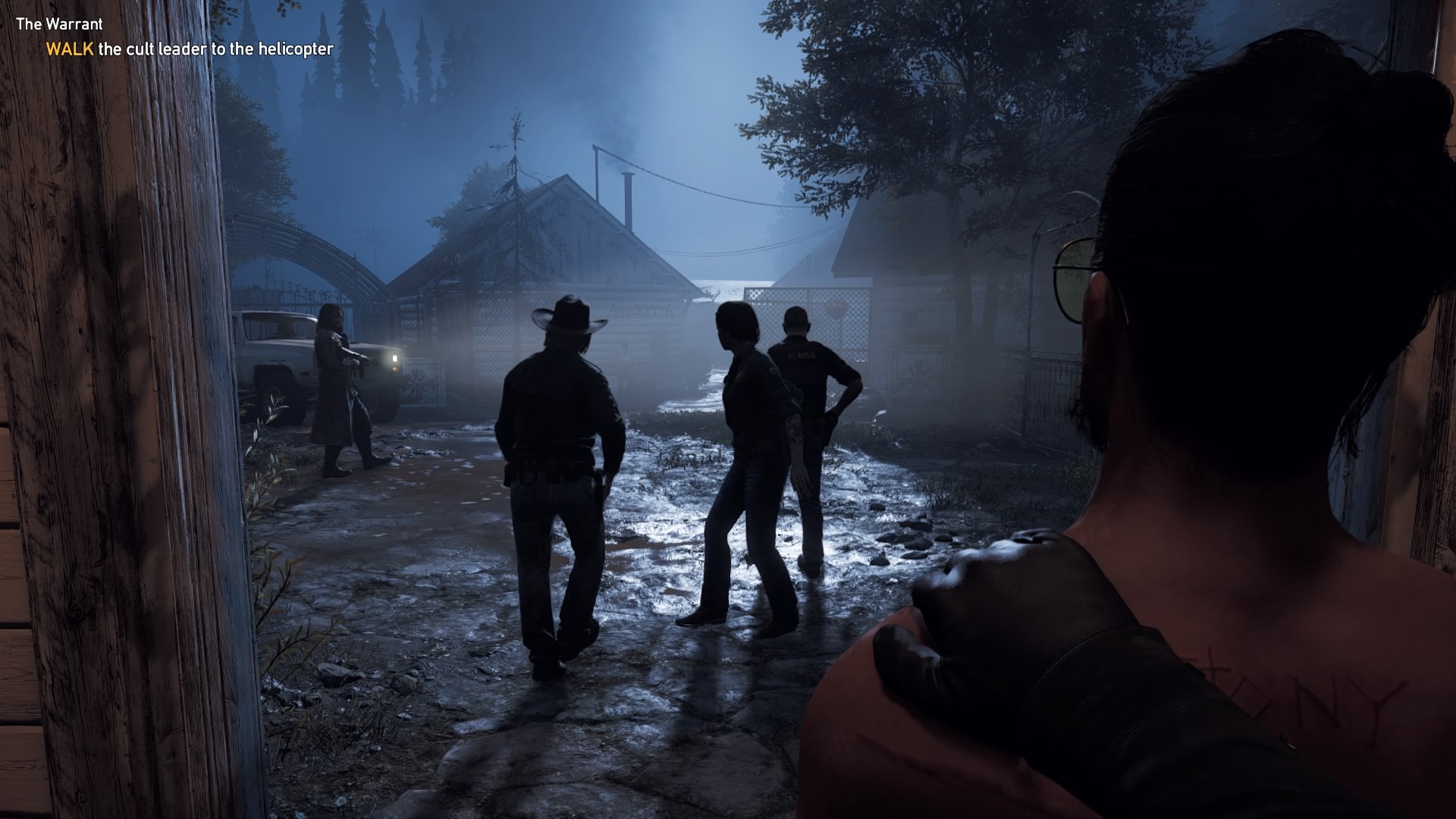
Talking of precedents, the villainous cult that is The Project at Eden’s Gate – and its mad-eyed, man bun-toting patriarch Joseph Seed – have some big shoes to fill in the bad guy department. Far Cry 3’s Vaas Montenegro proved to be one of gaming’s most memorable antagonists, and while FC4’s Pagan Min felt more like a comical bond villain at times, the series had made a name for itself with big bads that are as much of a selling point as the world itself.
Get daily insight, inspiration and deals in your inbox
Sign up for breaking news, reviews, opinion, top tech deals, and more.
And while some of the other members of the Seed brood are sadly a little forgettable, the calm intensity of its leader makes for an unsettling foil. His Charles Manson-esque qualities conjure a very believable villain – it’s just a shame the same can’t be said for the character that you’ll be playing. Both Jason Brody and Ajay Ghale from the previous games were integral to the plots of their respective stories, but with Ubi opting for a boring customizable avatar (with no voice over whatsoever) this time round, you’re often left feeling like a disconnected tourist rather than an involved contributor to a wider tale.
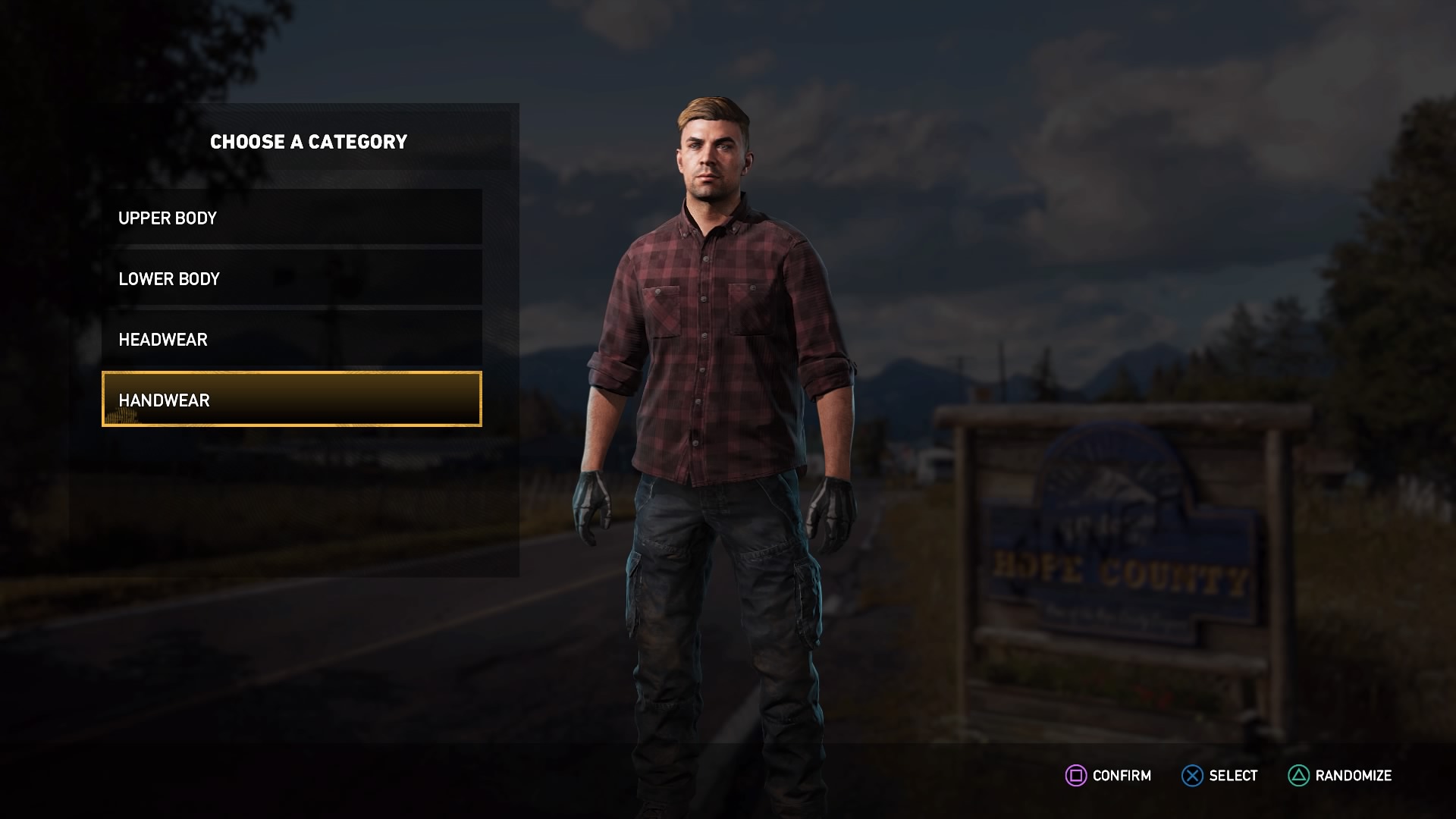
Plane, trains and automobiles
Sadly, you can't ride an angry elephant into battle a la Far Cry 4, but in its place you get a raft of fresh flying vehicles, including a rad new seaplane that can drop bombs from on high. With Hope County’s villainous occupants regularly sending out patrols to hunt you down - including helicopters and fighter planes - you'll get some fun (if ever so slightly automated) aerial dogfights. There’s also plenty of variety on the ground. There’s nothing quite like riding into battle on a tractor, flinging grenades like some deranged farmer.
As we mentioned earlier, the core gameplay of Far Cry 5 still follows the familiar template from the most recent Far Cry games, so it’s business as usual when it comes to combat and stealth. The Karma system from the previous game is absent, however, and a new Resistance meter is in its place. Each of the map's regions has its own Resistance meter and the more the meter fills, the more aggressive enemies become in that region. Certain areas will also change as you drive the The Project at Eden’s Gate out for good. It certainly suits the state-under-siege theme, but ultimately it lacks the emotional impact found in its predecessor.

Far Cry 5 also has a renewed fondness for co-operative play. You can still play the campaign with a friend with drop in/drop out co-op, but there's also plenty of NPC allies to call for help. These are split into two categories - Specialists and Fighters. Fighters are NPCs in the game world you can hire to assist you. They're all pretty weak and don't take much damage before they're downed, but they're ideal for distracting enemies when raiding an outpost.
The nine Specialists are a little more, well, special, with each one providing a unique style of offensive and a special set of skills that suit the challenge ahead. Nick Rye’s plane can provide aerial support to take down enemy planes (or carpet bomb heavies or extra tough Elite Cultists), while Grace Armstrong is a grizzled sniper who can provide overwatch when infiltrating a particularly tough outpost.
There are even some animal specialists – your Fangs for Hire. If you’ve ever wanted to take a giant bear called Cheeseburger into battle with you, this is the game for you. They’re not that useful early on, but as you push each region’s Resistance meter to the max they’ll become vitally important to surviving the onslaught regularly directed your way.
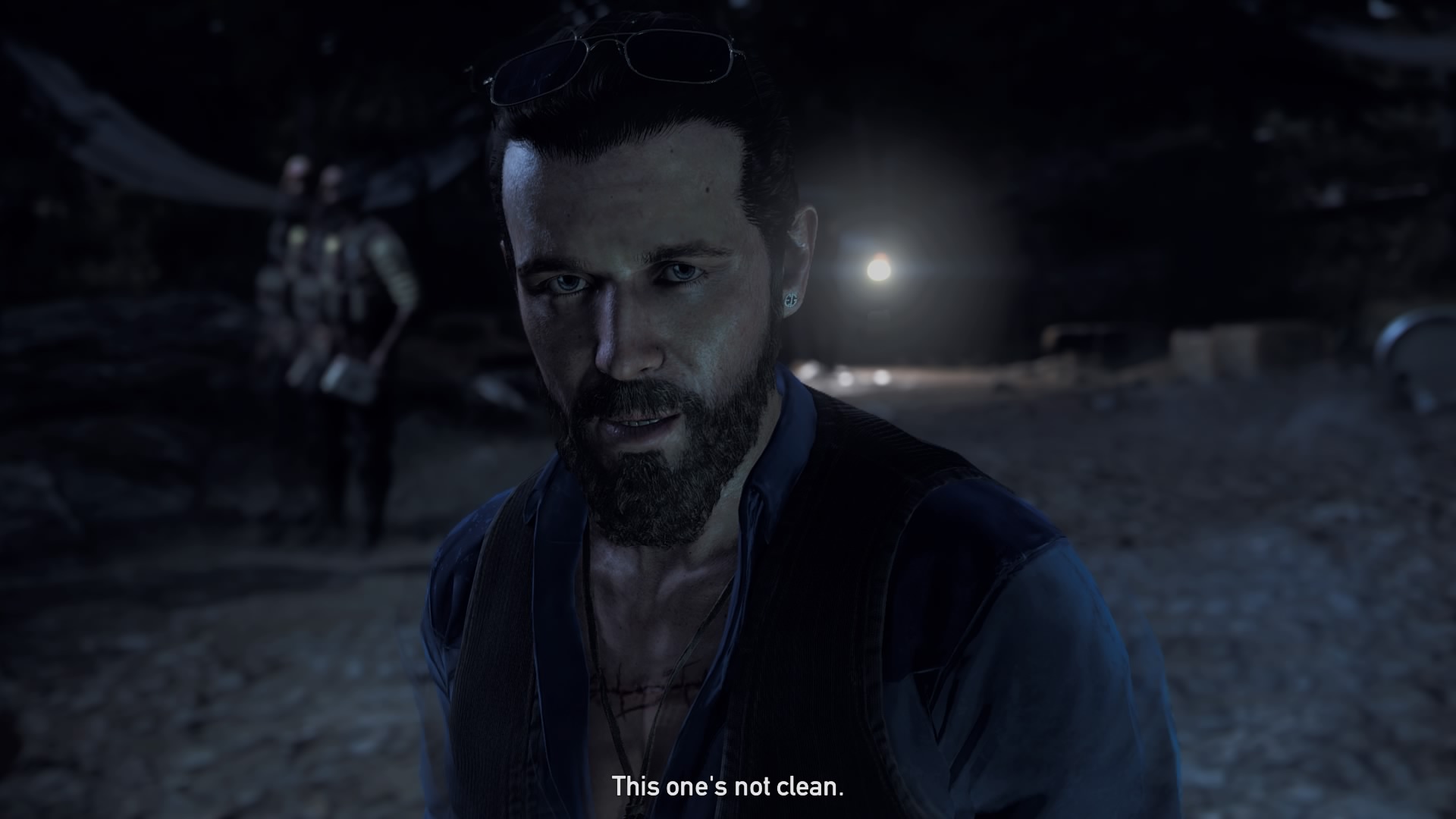
The wild hunt
To facilitate all this freedom of choice, the developer has made some big changes with regards to exactly how it empowers you. The traditional XP leveling system and skill trees last seen in Far Cry 4 have been dropped in favor of a new Perk setup. In order to earn these points you’ll need to complete Challenges, enabling you to upgrade your character through natural play. From killing a certain number of cultists with a certain weapon to covering a specific distance in vehicles, it’s a tried and tested means of rewarding you that’s served the likes of Call Of Duty well for years.
It does, however, come at the expense of some of the series’ most attractive elements. Remember crafting upgrades? That addictive cycle of hunting specific wildlife, skinning them and boosting your load out (such as extra holsters or larger quivers)? Well, that’s been removed almost entirely. Crafting does still exist, but it’s now resigned to making molotovs or bottles of pills that imbue you with a stat boost for a short period of time.
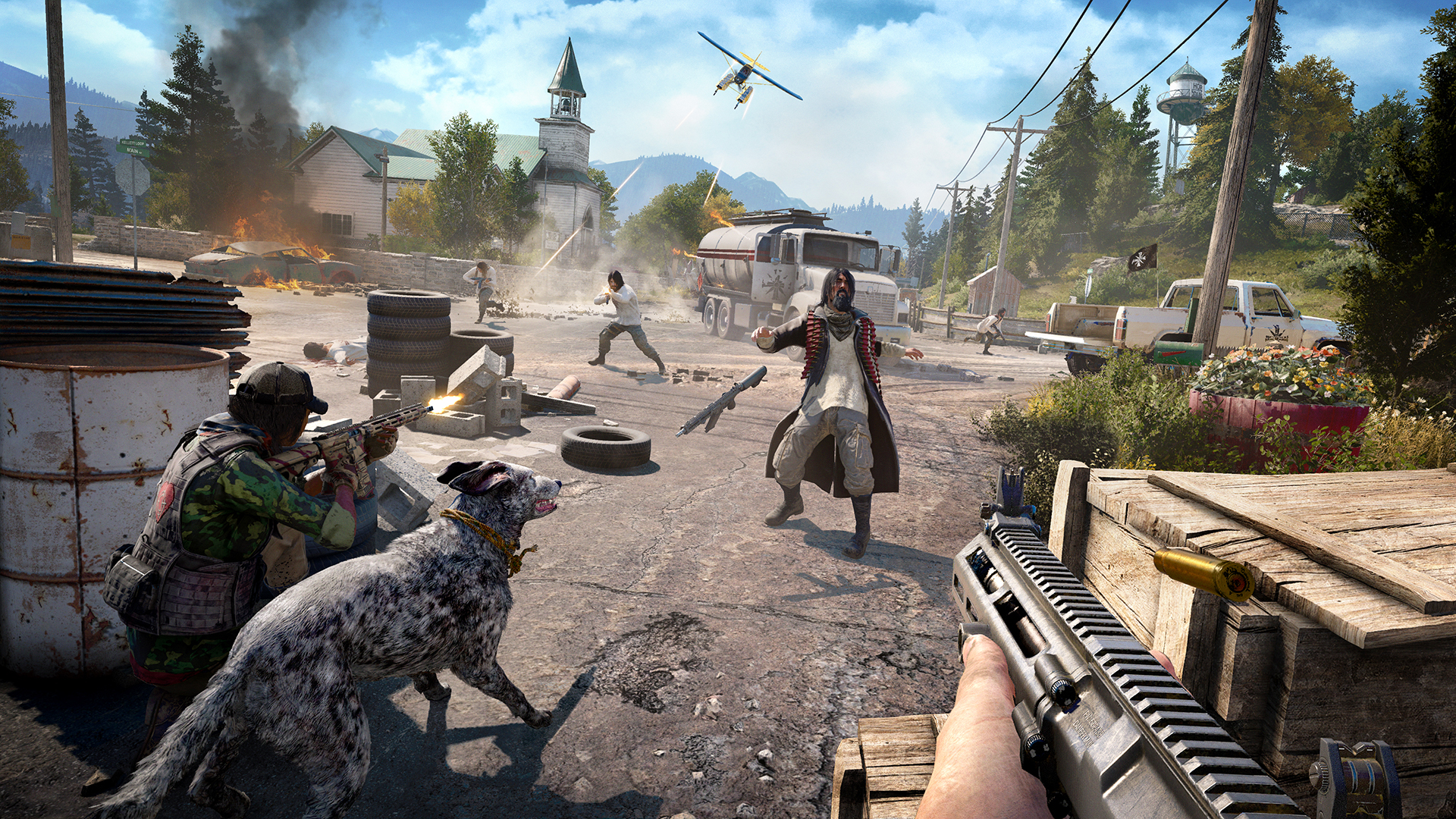
Extra weapon slots and all the other upgrades afforded by this endlessly satisfying feedback loop are now found in the Perks menu, with hunting now based solely around selling skins for cash at shops. It’s obvious this change is all about giving you a greater sense of agency, but by removing the hunting upgrade cycle Far Cry 5 robs the franchise of one of its own biggest selling points.
It’s a bizarre choice considering just how diverse Hope County’s ecosystem really is, and how much fun it still is to strap on a hunting bow and prowl through the its dynamic wilderness. With the map no longer boasting symbols denoting which areas play host to certain species (until you unlock them, at least), you’ll now need to head out and actively find road signs that signify which type of bear, skunk or bison is doddering about nearby. It’s still an engaging and rewarding experience, but it’s hard not to miss some of the luster that’s been taken away now hunting is purely recreational.
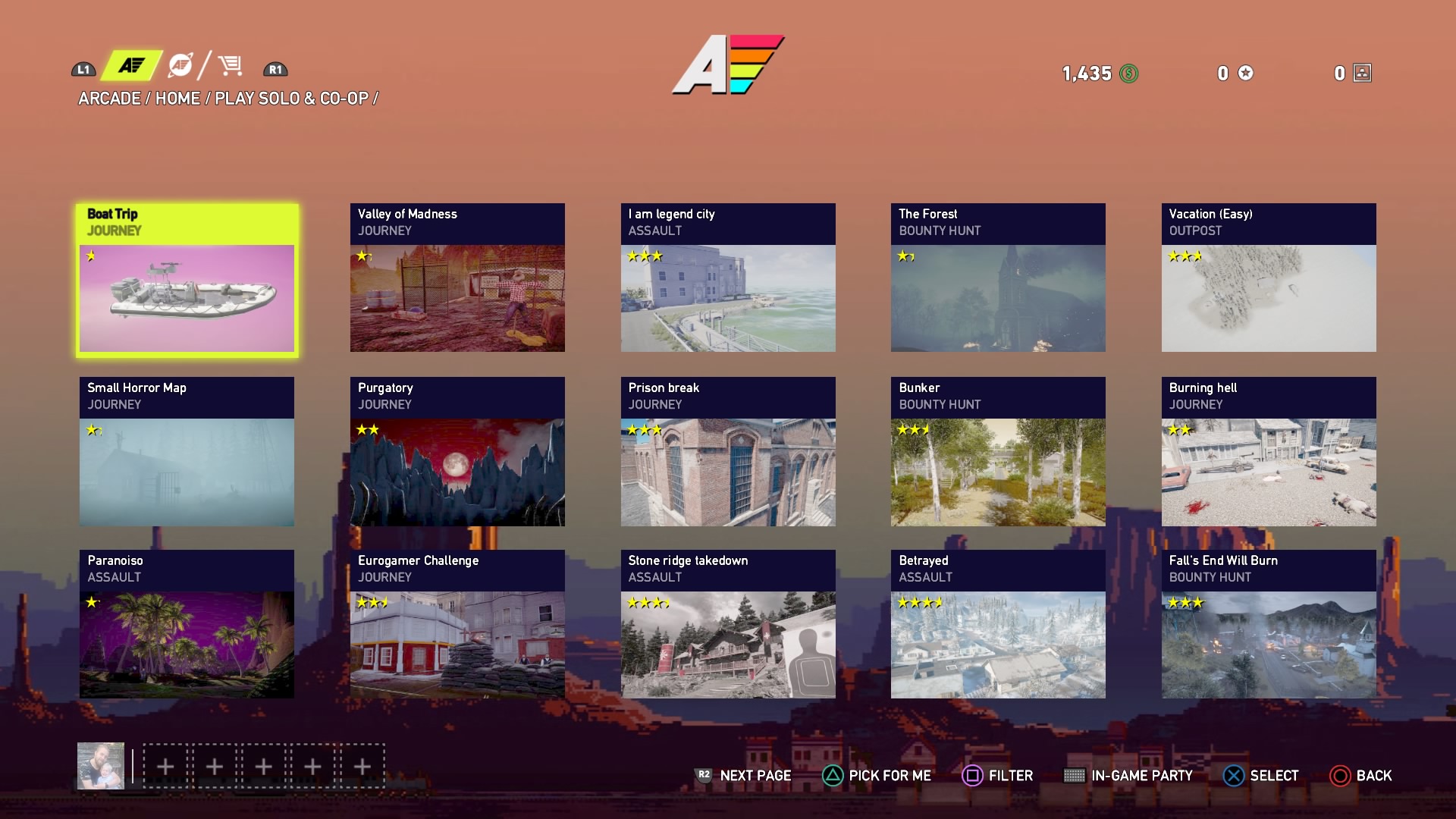
Outside of the lengthy campaign (we pushed north of 22 hours and still had a vast amount of side-activities left to complete), there’s also a much sillier – and alarmingly deep – Far Cry Arcade mode. Here you can take on all manner of challenge maps designed by the community, ranging from simple assault missions to all-out horror affairs - the whole mode has a fun Far Cry 3: Blood Dragon feel about it, and there’s an impressively vast range of missions to undertake both solo or in co-op. But where did all these madcap creations come from?
That would be the Arcade map editor, which offers the ability to create and edit said challenge maps from scratch. Less of a Minecraft ripoff and more of a creation suite similar to the Toy Box mode in the now-defunct Disney Infinity series, you can add practically any gameplay element you like from structures and vegetation to enemies, gameplay modifiers and post FX. With tons of assets from Watch Dogs, Assassin’s Creed and previous Far Cry games at your disposal, it’s an impressively vast tool that could be something truly special if the community embraces it.
Verdict: play it
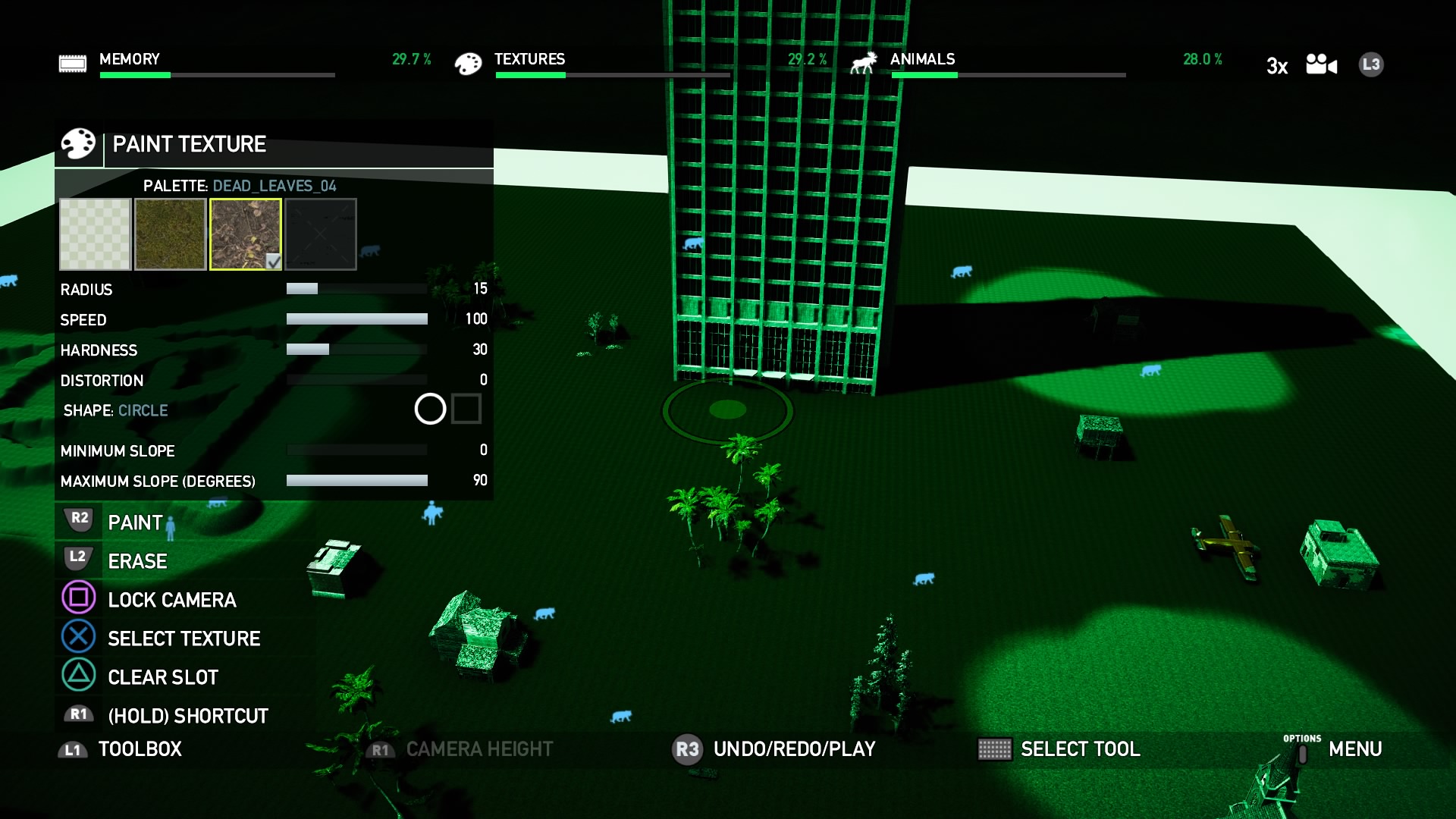
While not quite the example of franchise revitalization that Assassin’s Creed Origins afforded Ubisoft’s other big series, Far Cry 5 is still a bold and bombastic shooter that keeps most of its familiar gameplay elements in place and layers them across one of the most captivating open-worlds you can play outside of an RPG.
The lack of a true crafting system and an unnecessary character customization system takes away some of its sheen, but the over-the-top Arcade mode, an impressively deep map editor and the promise of ongoing in-game events makes this a far more attractive time sink than previous entries.